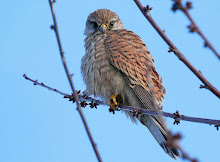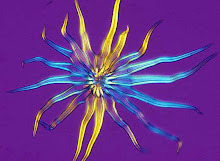This plant, Spignel Meum athemanticum, must be a strong contender for the title of most attractive foliage in the carrot family (Umbelliferae).
It's a rare plant, confined to one site in Northumberland, a few places in Cumbria and rather more locations in Scotland. I've never seen it growing in the wild but was introduced to it by Frank and Marjorie Lawley, when I visited them in 2002 to write a feature about their garden at Herterton House in Northumberland for The Garden magazine.
A few years ago I bought a plant in a nursery and have been growing it ever since.
It makes a very attractive, compact mound of this finely divided foliage, then in May produces .....
.... small umbels of white flowers
David Allen and Gabrielle Hatfield, in their book Medicinal Plants in Folk Tradition: an Ethnobotany of Britain and Ireland [Timber Press 2004] describe how its aromatic roots were used to treat flatulence and how the plant was driven to the point of extinction in the Pennines when it was collected to make scented snuff.
They also describe alternative theories for the origin of its other name, baldmoney. One is that it was sacred to the Norse god Balder, the other that this is a corruption of the word 'bawd-money', alluding to its use as an abortifacient after the sobering consequences of bawdy behaviour.
Every flower tells a story ....





























This is a rare treat. I'll not find one but I always enjoy what you impart and now and again can remember you did and what you did. .
ReplyDeleteYou're more likely to find it in Scotland than south of the border, Adrian
DeleteThis comment has been removed by the author.
ReplyDeleteI saw that Kate. I'd go with the bawdiness theory, every time. More fun.
DeleteYour title for the post is intriguing. Does it cause bawdy behavior in men or horses?.
ReplyDeleteI'm presuming it's men, lotusleaf
Delete